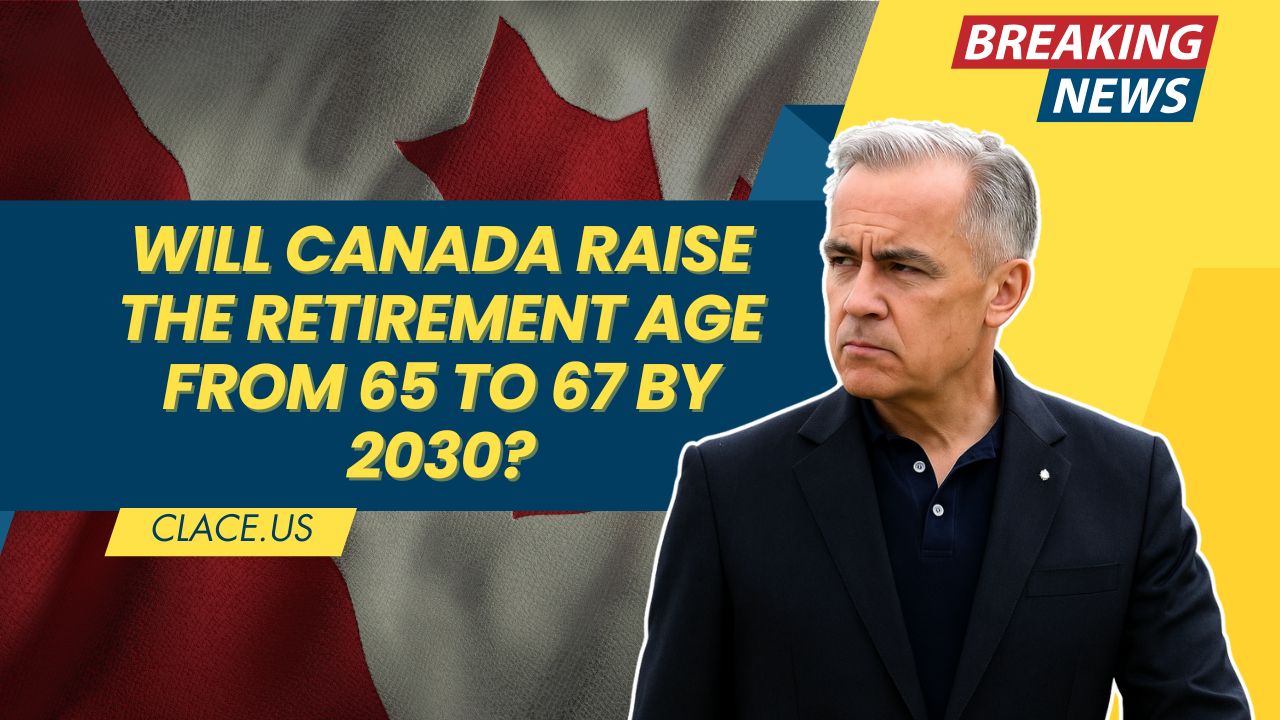Will Canada Raise the Retirement Age from 65 to 67 by 2030?
The future of retirement in Canada may soon look very different. With new proposals under review, many Canadians are asking the same question: Will the standard retirement age rise from 65 to 67?
As 2025 shapes up to be a pivotal year for pension reform, it’s crucial to understand what changes are being discussed, how they could affect you, and what steps you can take to prepare.
Why Is the Retirement Age Under Review?
Canada’s pension system faces growing challenges. By 2030, more than 20% of Canadians will be over the age of 65, placing unprecedented demand on programs such as the Canada Pension Plan (CPP) and Old Age Security (OAS).
At the same time, people are living longer, meaning benefits must be paid out for decades. Rising inflation, healthcare expenses, and housing costs are also forcing many older Canadians to continue working well into their late 60s and beyond.
To keep the pension system sustainable, the government is now exploring major reforms.
The Proposed Pension Withdrawal Policy Updates 2025
While no official law has been passed yet, policy proposals for 2025 suggest significant adjustments, including:
- Raising the retirement age from 65 to 67 by 2030
- Partial CPP withdrawals available starting at age 60
- Higher CPP contributions for top-income earners
- Increased pension bonuses for those who delay retirement
- Expanded tax credits for seniors who continue working past 65
These updates fall under the Pension Withdrawal Policy Updates 2025 framework.
Key Policy Shifts at a Glance
| Policy Proposal | Current Status | Proposed Change | Who Is Affected |
|---|---|---|---|
| Retirement Age | 65 | Increase to 67 by 2030 | Workers under 60 |
| Partial Pension Withdrawal | Allowed from 60 | New flexible work incentives | Early retirees |
| CPP for High-Income Earners | Flat-rate contributions | Tiered increases | Top income brackets |
| Pension Deferral Bonuses | Optional | Higher bonus rates | Workers over 65 |
| Tax Credits for Working Seniors | Limited | Expanded eligibility | Employed seniors post-65 |
Public Reaction to the Proposed Changes
Supporters argue that extending retirement age ensures pension sustainability and rewards those who choose to work longer. Urban professionals often see this as a fair trade for higher benefits.
However, critics—including advocacy groups like CARP—warn that the changes could hurt low-income seniors, people in physically demanding jobs, and those in poor health who cannot realistically work until 67.
Parliamentary Review
Currently, the proposals are still under Parliamentary review. Committees are debating the recommendations, and a potential bill could be tabled by the end of 2025. Until then, nothing is final.
What These Changes Could Mean for You
- Ages 60–64: You might see delays in receiving full benefits, though early withdrawal and flexible work incentives may ease the impact.
- Current retirees: Major reforms likely won’t affect you, aside from possible adjustments in benefit indexing.
- Under 40: You may face higher contributions and a later retirement age, making 67 the new standard.
How to Prepare for a Changing Retirement Landscape
If these proposals move forward, early preparation will be essential. Consider the following steps:
- Stay updated with announcements from Service Canada and the CRA.
- Strengthen private savings through RRSPs and TFSAs.
- Plan for a longer retirement—many Canadians are now living into their 90s.
- Speak with a financial advisor to adjust your strategy based on potential reforms.
While Canada has not officially raised the retirement age to 67 yet, all signs suggest a shift toward longer working lives and greater personal financial responsibility.
Whether you are just starting your career or approaching retirement, staying informed and planning ahead is the best way to secure your financial future.
FAQs
Not yet. The proposal is under review in Parliament and could become law by 2030, but nothing is finalized.
Current retirees are unlikely to face major impacts, although small adjustments in benefit indexing may still occur.
Boosting personal savings, monitoring official updates, and working with a financial advisor are key steps to prepare.




